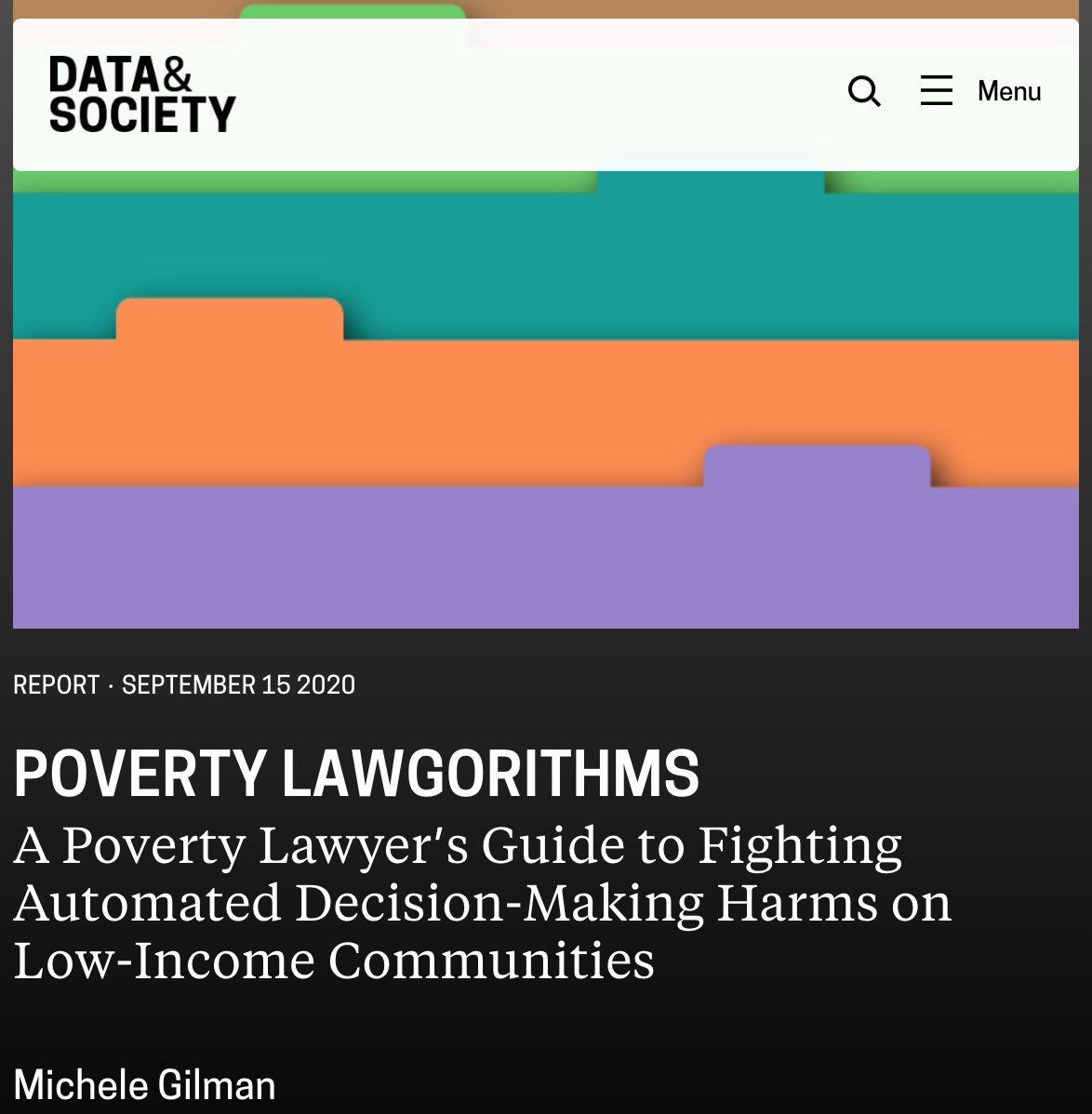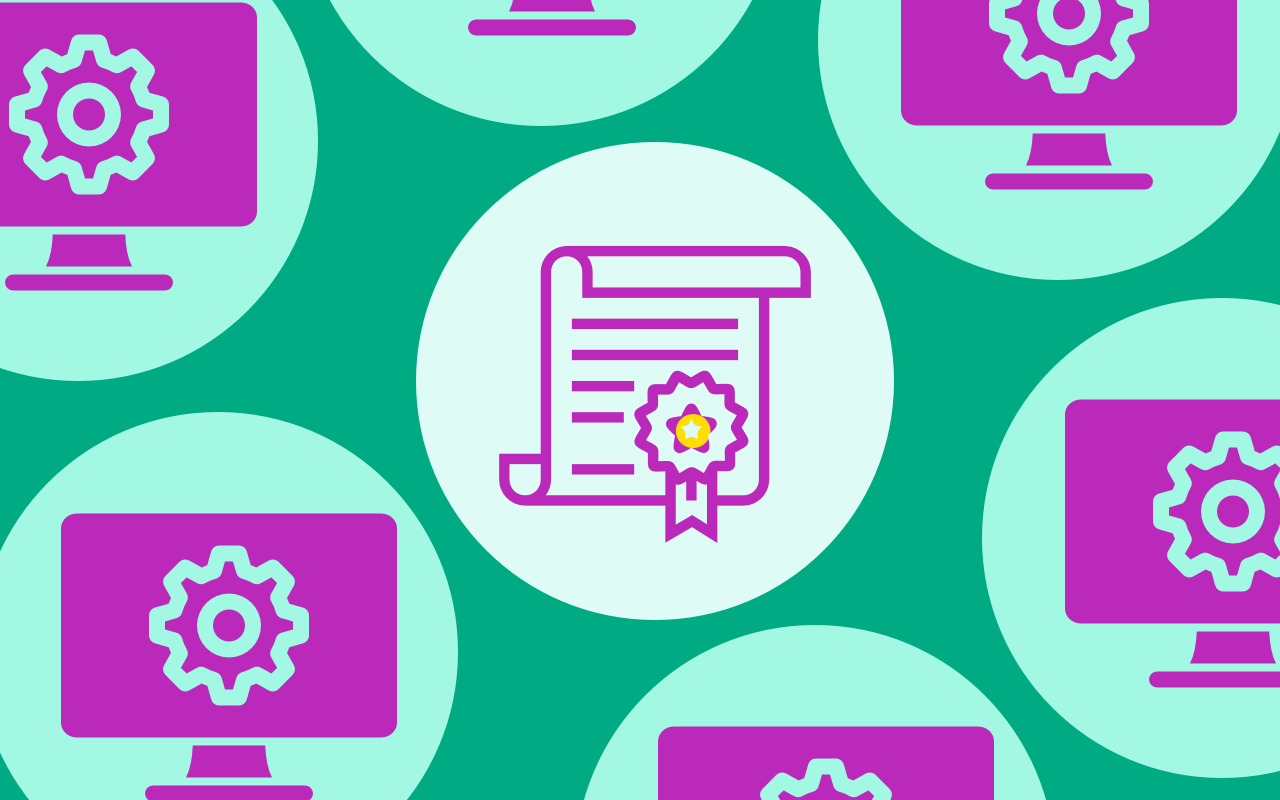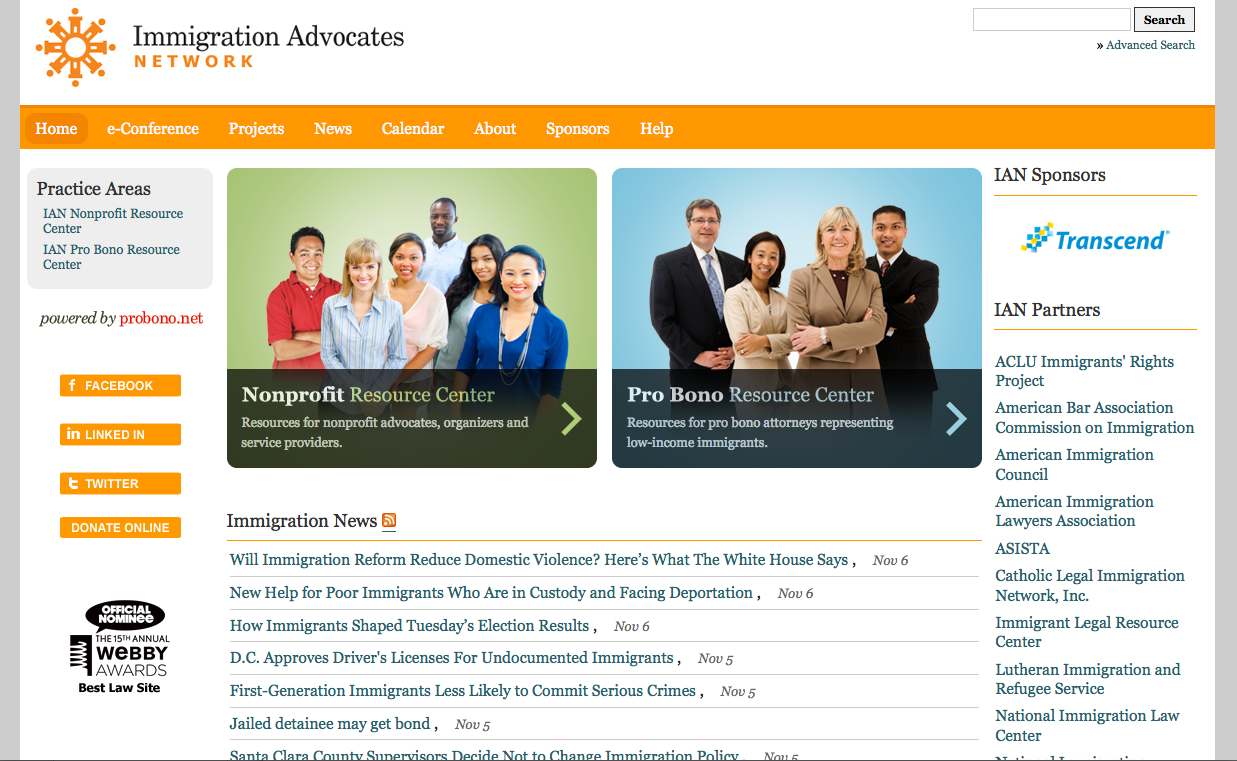Here’s a highly recommended report, Poverty Lawgorithms, from Michele Gilman through Data & Society, on how lawyers working on poverty law areas can better advocate for more ethical, human-centered government systems. In particular, as courts, government agencies, and tribunals buy more ‘smart’ technology that automatically sorts people, predicts risks, and makes decisions — how can we make this purchasing and review of the technology ensure that vulnerable people are protected?

Taking a due process point of view, how do we ensure that people get fair, transparent, robust process when these alogrithms are deciding about whether they get benefits, whether they are doing a violation, or what opportunities they should be given or denied?
Please note, the author is having an event this Friday, October 16th, to talk more about the report & this area of legal technology.
And for a shorter piece, here’s a medium piece from Michele Gilman that pulls out some of the points from the longer report!

